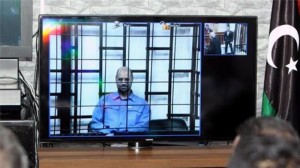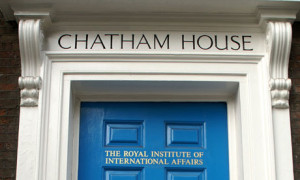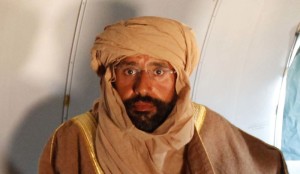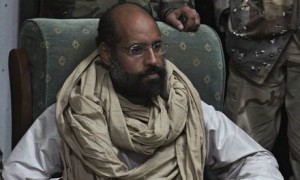Today, Saif al-Islam, son of deposed Libyan dictator Muammar Gaddafi, was sentenced in absentia to death by firing squad after being found guilty of war crimes by the Tripoli court. Held since 2011 by a former rebel group in Zintan that opposes the Tripoli government and refused to hand him over, Saif al-Islam’s trial had begun in April 2014. Saif al-Islam had appeared by video link in sessions at the start of trial but not later on.
Saif al-Islam was tried alongside his brother, Saadi Gaddafi, and other former officials of the Gaddafi regime, including Abdullah al-Senussi, the former intelligence chief to Muammar Gaddafi, as well as two former prime ministers and 34 senior officials of the old regime. Abdallah al-Senousi and former PM Baghdadi al-Mahmoudi are among the eight people also facing the death penalty, while other defendants have received sentences ranging from five years to life imprisonment. They will be given the right to appeal.
The International Criminal Court (ICC) had expressed concerns about the failures, with particular concerns over fairness, of Libya’s justice system. The situation in Libya was referred by the UN Security Council (UNSC) to the ICC in February 2011. Challenged by the Libyan authorities, the ICC found in October 2013 that the case against Mr Al-Senussi was inadmissible before the Court but confirmed in May 2014 that the case against Saif Al-Islam Gaddafi was admissible. On December 2014, the ICC had issue a finding of non-compliance by the Government of Lybia to the UNSC with respect to the nonexecution of two requests for cooperation, i.e. requests to surrender Saif Al‑Islam Gaddafi to the Court and to return the originals of the documents of Saif Al-Islam Gaddafi’s Defence.
According to Salah al-Bakkoush, a Tripoli-based political analyst, the rulings should not have strong resonance in Lybia. “Libyans in general have so many problems right now that many were not even following the trial,” he told Al Jazeera. “Those who participated in the struggle against the regime of Gaddafi will be following and will be happy.”




